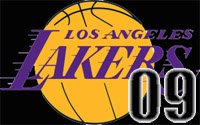As part of an occasional series, I'll talk about things that aren't readily apparent to those who are new with (or otherwise confused by) baseball. I expect these to pop up once or so a month, driven largely by the amount of confusion I see in either the typically wrong national media or on sites like Halos Heaven with lots of user-generated content.
For those of you who watch 100 games a year, or grew up watching the game and know the 40-man roster of every team in your division, this stuff is going to seem incredibly low-level and boring...which is fine. Feel free to skip these posts, or add commentary if I've made a newbie error myself.
Today, I'm focusing on defense and offense as they relate to position. I'm bothering with this topic because of this post on HH.
Marcus, I don't really understand why expected offensive production from some positions is lower than that of other positions. Isn't it reasonable to expect a single batting line from every position?
The first step to moving from bad baseball analysis to good baseball analysis is realizing that a team of circa-2003 David Ortiz's would be an awful team. Sure, every player would hit 50 home runs and end the season with 150 RBI, but the team would still lose far more games than it won. Why? Defense.
Keep in mind that saving a run through defense is just as good as creating a run through offense.* If a player saves 5 runs in the field per season, that's just as valuable (actually, more valuable) than a player driving in 5 runs per season. Imagine, if you will, a situation where every ball hit into the field is an out. A team with perfect defense, where a single groundball doesn't make it out of the infield and anything that makes it into the outfield is caught. Even with a poor offense, this team would still win many games. They would allow runs only on homers, and even a bad pitching staff doesn't allow nearly as many home runs as it does base hits.
This is why we expect different amounts of offense from different positions. A shortstop plays an extremely difficult position from a defensive standpoint. Thus, if he can save 15 runs/season in the field, having a below-average batting line worth -10 runs/season still makes him a valuable player. But let's say you want more offense from the shortstop position, so you put David Ortiz in the lineup next to SS. Now you're getting +30 runs/season from offense, but -50 runs/season from defense. Compared to the light-hitting shortstop, you've lost 15 runs/season even though your shortstop is now hitting 50 homers.
A good example of an offense-first position is right field. Let's say you have an awful, awful right fielder. There's still far fewer balls being sent to right than shortstop. So even if your right fielder is using a skillet for a glove, he might only be a -10 runs/season on the defensive end. But he's David Ortiz, and he's hitting 50 homers a season, giving you +30 runs/season on the offensive end, for a net +20 runs on the season.
The root issue here is that there are very few players who can hit 30+ home runs and very few players who can play an excellent shortstop. The chances of finding a 30+ homer shortstop are very small. Thus, you're happy with 10 homers (or fewer) from the shortstop position, while 10 homers or fewer from right field is a massive disappointment.
*Note: Runs created versus runs prevented is not tremendously simple, and well beyond the bounds of this discussion. If you're interested in the impact of defense on overall team record, Fangraphs is a good place to start, and there's usually lots of good discussion on Lookout Landing, if you can deal with Seattle.
Thursday, May 21, 2009
Subscribe to:
Post Comments (Atom)




No comments:
Post a Comment